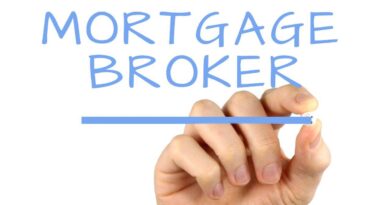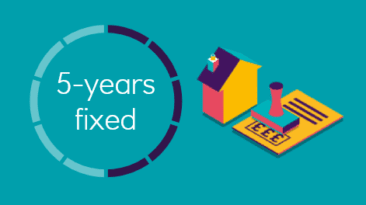Purchasing a home is a significant milestone in many people’s lives, but it can also be a complex and overwhelming process. One of the critical players in this journey is the mortgage lender. A mortgage lender is a financial institution or individual that provides the funds needed to purchase a home. They play a crucial role in the home buying process, and choosing the right mortgage lender can make a substantial difference in your homeownership experience.
In this guide, we’ll walk you through all aspects of the mortgage lender and the mortgage lending process. From understanding the different types of mortgage lenders to tips for choosing the right one, we’ve got you covered. Let’s dive into the world of mortgage lenders and help you find your path to homeownership.
Types of Mortgage Lenders
Before you embark on your homebuying journey, it’s essential to know that there are different types of mortgage lenders in the market. Understanding their distinctions can help you make an informed decision:
1. Traditional Banks
Traditional banks are among the most common mortgage lenders. These are well-established financial institutions that offer a wide range of banking services, including mortgage loans. They have a physical presence through branches and may also provide online mortgage services.
2. Credit Unions
Credit unions are non-profit organizations that serve members within a specific community or profession. They often offer competitive interest rates and may have more flexible lending criteria than traditional banks.
3. Mortgage Brokers
Mortgage brokers act as intermediaries between borrowers and lenders. They work with various lending institutions to find the best mortgage options for their clients. Mortgage brokers can provide access to a broad range of lenders, making them a valuable resource for homebuyers.
4. Online Mortgage Lenders
In the digital age, online mortgage lenders have emerged as convenient alternatives. These lenders operate solely online, providing quick pre-approvals and streamlined application processes.
5. Mortgage Bankers
Mortgage bankers are financial institutions that originate, fund and service mortgage loans. They may sell these loans in the secondary market or retain them in their portfolio.
Factors to Consider When Choosing a Mortgage Lender
Selecting the right mortgage lender is a crucial step in the home-buying process. Here are some essential factors to consider when making your decision:
1. Interest Rates and Loan Terms
Interest rates significantly impact your mortgage’s overall cost. Compare the interest rates and loan terms offered by different lenders to find the most favorable option for your financial situation.
2. Types of Mortgages Available
Different lenders may offer various types of mortgages, such as fixed-rate, adjustable-rate, FHA, VA, or USDA loans. Determine which type of mortgage suits your needs best.
3. Down Payment Requirements
Consider the down payment requirements of each lender. A higher down payment can result in lower monthly mortgage payments and possibly better interest rates.
4. Customer Reviews and Reputation
Do your research and read customer reviews about potential lenders. A lender with a positive reputation and satisfied customers may be more reliable and trustworthy.
5. Closing Costs and Fees
Inquire about the closing costs and fees associated with the mortgage. Understanding these costs upfront can help you plan your budget accordingly.
6. Pre-Approval Process
A pre-approval from a lender gives you an advantage in the home buying process. Find out about the lender’s pre-approval process and its validity period.
The Mortgage Application Process
The mortgage application process can seem daunting, but with the right knowledge, it becomes more manageable. Here’s a step-by-step guide to help you navigate through it:
1. Gather Necessary Documents
Lenders require various documents during the application process. These may include income statements, tax returns, bank statements, and proof of identification. Gather all necessary documents before proceeding with the application.
2. Pre-Qualification and Pre-Approval
Pre-qualification is an initial assessment of your eligibility for a mortgage, while pre-approval is a more in-depth analysis. Obtaining a pre-approval letter strengthens your position as a serious buyer.
3. Submit Your Application
Complete the mortgage application with your chosen lender. Be accurate and honest in providing information to avoid delays or complications.
4. Underwriting Process
Once your application is submitted, the lender’s underwriter reviews and verifies the information provided. They assess your creditworthiness and the property’s value.
5. Loan Decision
Following the underwriting process, the lender will provide a decision on your loan application. They may approve the loan, deny it, or request additional information.
6. Closing the Mortgage
If your loan application is approved, you will proceed to the closing stage. During the closing, you’ll sign the necessary documents to finalize the mortgage.
FAQs about Mortgage Lenders
Q: What is the difference between a mortgage lender and a mortgage broker?
A: While both mortgage lenders and brokers offer mortgage loans, there is a key distinction. Mortgage lenders provide the funds directly to borrowers, while mortgage brokers work as intermediaries, connecting borrowers to lenders.
Q: Can I get a mortgage from an online lender if I have a unique financial situation?
A: Yes, online lenders often cater to borrowers with unique financial situations. They may have more flexible underwriting criteria, making it possible for individuals with unconventional income sources or credit histories to qualify for a mortgage.
Q: How do I compare mortgage offers from different lenders?
A: To compare mortgage offers effectively, consider the interest rates, loan terms, closing costs, and fees. Evaluating these factors will help you find the most suitable mortgage offer for your needs.
Q: Is it better to go with a big bank or a credit union for my mortgage?
A: The choice between a big bank and a credit union depends on your preferences and financial situation. Big banks may offer a wider range of services, while credit unions might provide more personalized attention and potentially lower fees.
Q: Can I negotiate the terms of my mortgage with the lender?
A: Yes, negotiating with the lender is possible. You can discuss interest rates, closing costs, and other terms to find a more favorable deal.
Q: What are closing costs, and how much should I expect to pay?
A: Closing costs are fees paid at the closing of a real estate transaction. These can include appraisal fees, title insurance, attorney fees, and more. Closing costs typically range from 2% to 5% of the home’s purchase price.
Conclusion
Choosing the right mortgage lender is a crucial step in achieving your dream of homeownership. By considering factors such as interest rates, loan terms, and customer reviews, you can make an informed decision that aligns with your financial goals.
Remember, the mortgage application process may seem complex, but taking it step by step will make it more manageable. Gather all necessary documents, obtain pre-approval, and work closely with your chosen lender to secure the best mortgage for your needs.
Now that you have a comprehensive understanding of mortgage lenders and the home-buying process, you are better equipped to embark on your journey to homeownership confidently.





Add comment